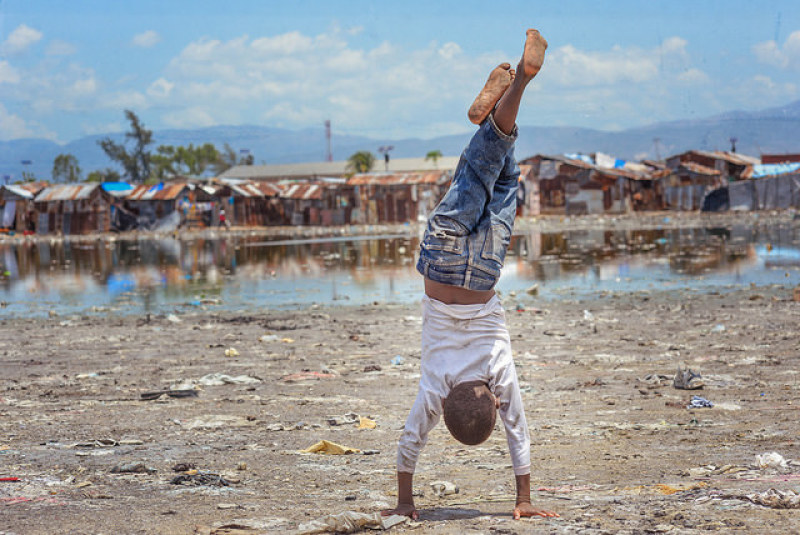
January 12, 2015 marks the disastrous Haiti earthquake's fifth year anniversary. Five years ago, over than 220,000 lives were claimed by the earthquake, changing the lives of almost the entire nation. Five years later, residents still feel its aftershocks. How is Haiti these days, really?
The 7.0 magnitude quake left Haiti looking like a ghost town in 2010 after homes and buildings were leveled. Many did not know how to move on from such a tragic event. About 1.5 million found themselves homeless.
Today, significant progress has taken place, according to reports.
Organizations from around the globe pitched in to give a helping hand. Rebuilding a nation is never an easy feat, but organizations like Red Cross, UNICEF and World Vision (to name a few) have made a significant contribution to the country's progress.
"There have been several successes since the earthquake. Over 88% of children are going to school, we've seen improvement in the weight of children, and we've seen a drastic improvement with some aspects of housing and civil protection," Senior Country Director of the UN Development Program for Haiti Sophie de Caen said.
But it seems like its people have opposing views in terms of the country's progress.
"The wounds are still here, and everyone says that they're living in worse conditions than before," photographer Gael Turine shares with TIME.
Apart from the emotional and economic turmoil that the country is in, politics is also apparently at its worst. Protesters rallied and criticized Haitian President Michel Martelly's leadership for the slow economic progress. Many are also asking where the $13.5 billion in pledges and donations went.
"This not no city, it's a slum. These people are living, they are living very bad. This is not the way people should live. They don't look good at all. Them people are suffering big time. They are suffering," Mike Jonet, a Canaan resident said in an interview. A former janitor at the US embassy, Jonet has taken orphans in his care.
The country has a huge population, most families can only afford to spend $1 to $2 a day, and some have even less.
Many residents attended ceremonies at Port au Prince, where the earthquake left the most fatalities. There are also those who chose to stay at home and gave a solemn prayer for their loved ones who have departed.



















